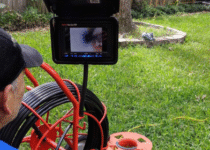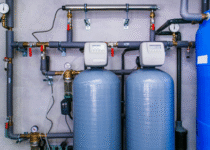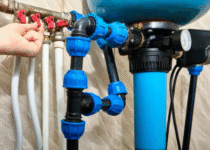Why Regular Well Water Testing Matters More Than You Think
If you’ve ever lived outside city limits, you know that having your own well feels like a small luxury. No monthly water bills, no waiting on the utility company, and—when it’s good—some of the freshest water you’ll ever taste. But the thing about wells is that they don’t come with a built-in safety net. Public water systems are constantly monitored, tested, and treated. Your private well? Not so much. It’s entirely on you. And that’s why well water testing Clarksville TN isn’t just a suggestion—it’s almost a necessity for peace of mind.
Most homeowners I’ve spoken with tend to assume their well water is fine because it looks clear and tastes normal. But here’s the truth: contaminants don’t always announce themselves with a bad smell, funny taste, or cloudy appearance. Bacteria, heavy metals, and even naturally occurring minerals can quietly slip into your supply. Left unchecked, they can cause everything from annoying plumbing issues to very real health problems.
What Testing Actually Tells You
Testing your water isn’t just about one quick sample. It’s about understanding what’s going on beneath your property. A typical private well water test service can reveal levels of things like nitrates (common in agricultural areas), arsenic, iron, and even coliform bacteria. These aren’t minor inconveniences. Nitrates, for example, are particularly dangerous for infants. Coliform bacteria, meanwhile, might be harmless—or they might signal the presence of something much more harmful, like E. coli.
Think of it as a health checkup for your well. You wouldn’t skip out on your doctor’s visits for years and assume everything’s fine just because you “feel okay.” Wells are the same way. They need consistent checkups, ideally once a year, to confirm that the water you’re drinking, cooking with, and showering in is safe.
The Local Angle in Clarksville
Clarksville has its fair share of homeowners with private wells, and the geology of Tennessee adds a layer of complexity. Limestone-rich areas can lead to hard water, which wears down appliances over time. Then there’s the potential of runoff—farm fertilizers, septic system leaks, or industrial pollutants that can sneak into groundwater. Even if your well casing is solid and sealed, what’s happening in the larger aquifer still matters.
That’s why relying on professional testing, rather than just a cheap over-the-counter kit, makes a big difference. The professionals know what’s common in the area, which tests actually matter, and how to interpret the results. They don’t just hand you a confusing report full of numbers—they explain what those numbers mean for your family.
The Money Side of Things
I get it. Everyone wants safe water, but nobody likes spending extra money. The phrase “lab testing” alone sounds like it’ll drain your wallet. But here’s the encouraging part: you can usually find affordable well water testing near me without breaking the bank. Many local providers offer packages that cover the essentials—bacteria, nitrates, pH, and metals—for less than the cost of a dinner out with the family.
Now compare that with the cost of replacing a water heater corroded by untreated hard water, or worse, the medical bills from drinking contaminated water. Suddenly, the testing feels like a bargain. Prevention almost always costs less than the cure.
When Should You Test?
The general rule of thumb is once a year for standard testing. But there are certain times when you shouldn’t wait:
- After heavy flooding or a major storm that could compromise your well.
- If you notice any sudden change in taste, odor, or color.
- When you replace or repair part of your well system.
- If neighbors with wells nearby discover contamination.
And if you’ve just moved into a home with a well, don’t take the previous owner’s word for it. Get your own test done. People don’t always mean to be dishonest, but “we’ve never had any problems” isn’t the same thing as having lab results in hand.
DIY Kits vs. Professional Services
Walk into a home improvement store and you’ll probably see test kits promising instant answers. They’re tempting, sure, and they might give you a general sense of your water quality. But they’re not comprehensive, and they can’t test for everything that matters. Professional services, on the other hand, follow standardized procedures, use certified labs, and provide results you can trust.
It’s a bit like comparing a thermometer at home to a full blood panel at a clinic. Both have their place, but only one can give you the kind of clarity you need for long-term decisions.
The Bigger Picture
Beyond personal health, testing your well water regularly protects your property value. If you ever sell your home, being able to show documented water test results is a selling point. Buyers want reassurance, and honestly, you’d probably want the same if you were on the other side of the deal.
Plus, there’s just something reassuring about knowing for sure. Uncertainty is what keeps people awake at night. Having a report in hand saying, “Yes, your water is safe,” is worth more than you might expect.
Wrapping It Up
At the end of the day, well water isn’t something you should take lightly. It’s not just another utility—it’s the lifeblood of your household. Keeping it clean, safe, and reliable doesn’t have to be complicated, but it does require a little responsibility on your part. Schedule that annual test, pay attention to any changes, and trust the professionals when you need them.



